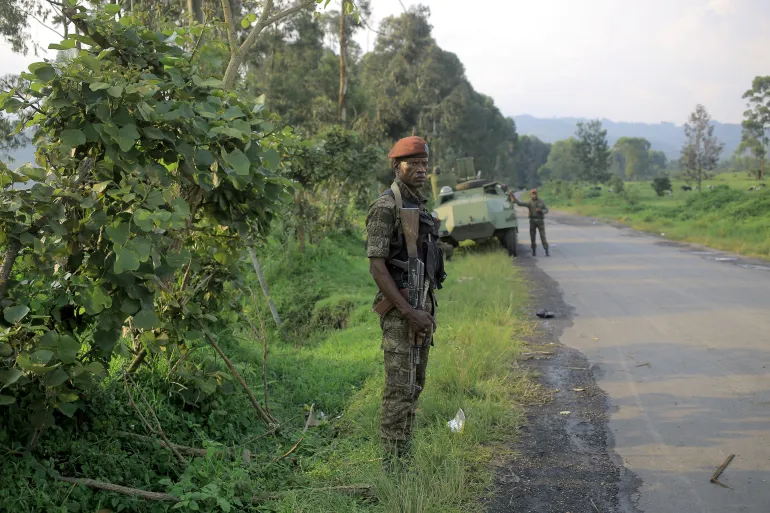The ongoing conflict in the Democratic Republic of Congo (DRC) has been marred by complex dynamics, involving various actors with divergent interests. Among the key players, Rwanda has emerged as a significant participant in the conflict, raising questions about its motivations and the broader international involvement. This article aims to shed light on Rwanda’s role in the current war in Congo, with a focus on the contributions and interests of France, Russia, and other Western nations.
To understand Rwanda’s involvement in the Congo conflict, it is crucial to examine the historical context of the region. The Rwandan Genocide of 1994, which resulted in the mass slaughter of ethnic Tutsis, left scars that continue to influence regional politics. The Rwandan Patriotic Front (RPF), led by Paul Kagame, took control of Rwanda after the genocide. Kagame’s government has faced allegations of supporting rebel groups in neighboring countries, including the DRC, to ensure regional stability and security.
Rwanda’s involvement in the Congo can be traced back to its security concerns and economic interests. The eastern part of the DRC, particularly the provinces of North and South Kivu, has been a hotspot for rebel activity. Rwanda has justified its interventions as a response to the presence of anti-Rwandan militias, such as the Democratic Forces for the Liberation of Rwanda (FDLR), operating in the region. However, critics argue that Rwanda’s actions are driven by a desire to control the lucrative mineral resources in eastern Congo, including coltan, gold, and diamonds.
France, with its historical ties to several African nations, including Rwanda, has been a key player in the continent’s affairs. In the case of the DRC, France’s involvement has been complex and often intertwined with its historical connections to former colonies. During the Rwandan Genocide, France was criticized for supporting the Hutu-led government, accused of complicity in the atrocities. This strained relations with the post-genocide Rwandan government, led by Kagame.
France’s role in the current conflict is ambiguous, with some suggesting that it has maintained covert ties with elements within the DRC that oppose Rwanda. However, there is no clear evidence of direct French military involvement in the conflict. Instead, France has been more active diplomatically, engaging in peacekeeping efforts and supporting international initiatives aimed at resolving the crisis.
Russia’s involvement in the Congo conflict adds another layer of complexity to the situation. While historically not deeply connected to the region, Russia has sought to expand its influence in Africa in recent years. Moscow has been providing military assistance to various African nations, including the DRC, often in exchange for access to natural resources.
In the case of the Congo conflict, Russia has been accused of supporting the government forces led by President Félix Tshisekedi. This support includes military training, equipment, and diplomatic backing. The involvement of Russian private military contractors, such as the Wagner Group, has also raised concerns about the escalation of the conflict and the potential for human rights abuses.
The involvement of Western nations in the Congo conflict has been characterized by diplomatic efforts, humanitarian aid, and calls for peace. The United States, European Union, and other Western countries have condemned the violence and supported initiatives aimed at finding a peaceful resolution. However, their influence has been limited, given the complex web of regional and global interests at play.
Efforts have been made to address the root causes of the conflict, including economic disparities, political instability, and the exploitation of natural resources. International organizations and NGOs have played a role in providing humanitarian assistance and advocating for a sustainable peace process. However, achieving lasting stability in the region requires a concerted effort from all parties involved.
The current conflict in the Democratic Republic of Congo is a multifaceted crisis with roots in historical tensions, regional power struggles, and economic interests. Rwanda’s involvement, driven by security concerns and alleged economic motivations, has added complexity to an already volatile situation. The roles of France, Russia, and other Western nations further complicate the landscape, with each actor pursuing its own interests in the region.
As the international community grapples with finding a sustainable solution to the Congo conflict, it is essential to address the underlying issues, promote dialogue, and foster regional cooperation. The complexities of the situation demand a comprehensive and inclusive approach that considers the interests and grievances of all parties involved, both within the region and on the global stage.
Image Credit: Djaffar Sabiti/Reuters





